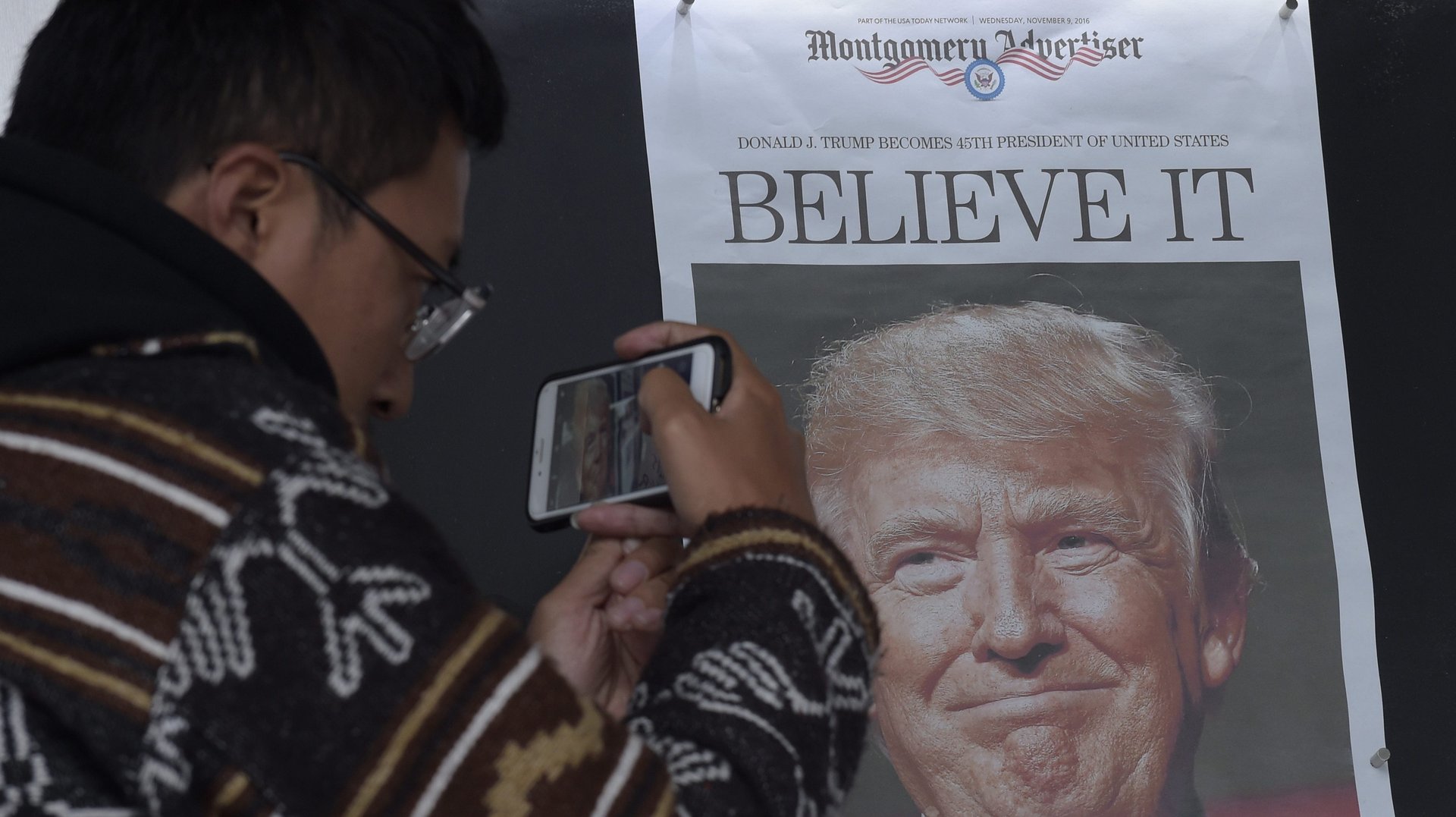Donald Trump is (still) wrong about how China’s currency works
After infuriating Beijing with a phone call with Taiwan that upended decades of US diplomatic protocol, president-elect Donald J. Trump went a few steps further, rallying against China’s currency and military policies on Sunday (Dec. 4) in a series of tweets:


After infuriating Beijing with a phone call with Taiwan that upended decades of US diplomatic protocol, president-elect Donald J. Trump went a few steps further, rallying against China’s currency and military policies on Sunday (Dec. 4) in a series of tweets:
Who knows what prompted Trump’s latest China blast on Twitter. But what is certain is his accusation that Beijing is devaluing its currency is wrong—again.
It is a repeat of the accusations he made on the campaign trail. He said during the first presidential debate that “They’re devaluing their currency, and there’s nobody in our government to fight them… they’re using our country as a piggy bank to rebuild China, and many other countries are doing the same thing.”
But the “devaluing” he referred to happened about two decades ago. Through out the late 1990s and most of the 2000s, China did indeed prevent the yuan’s value from rising against the dollar so as to make its exports cheaper. But since around 2007 the yuan has strengthened sharply, and in May 2015 the International Monetary Fund said the currency was no longer undervalued.
Trump isn’t just wrong about what Beijing is doing, he’s wrong about the impact it might have. This year, even though the yuan depreciated against the dollar, Chinese exports have not picked up thanks to the weak global economy. “It has become less effective and unnecessary for Beijing to use a cheaper yuan to boost exports,” noted Shuli Ren of Barron’s recently, because “the pie is getting smaller and competitive easing can only get you so far.”
Recently, with China’s foreign currency reserves falling to the lowest since 2011, the Chinese central bank are believed to have sold the dollar to ease yuan’s decline, in an attempt to curb record capital outflows— doing exactly the opposite of what Trump claims.